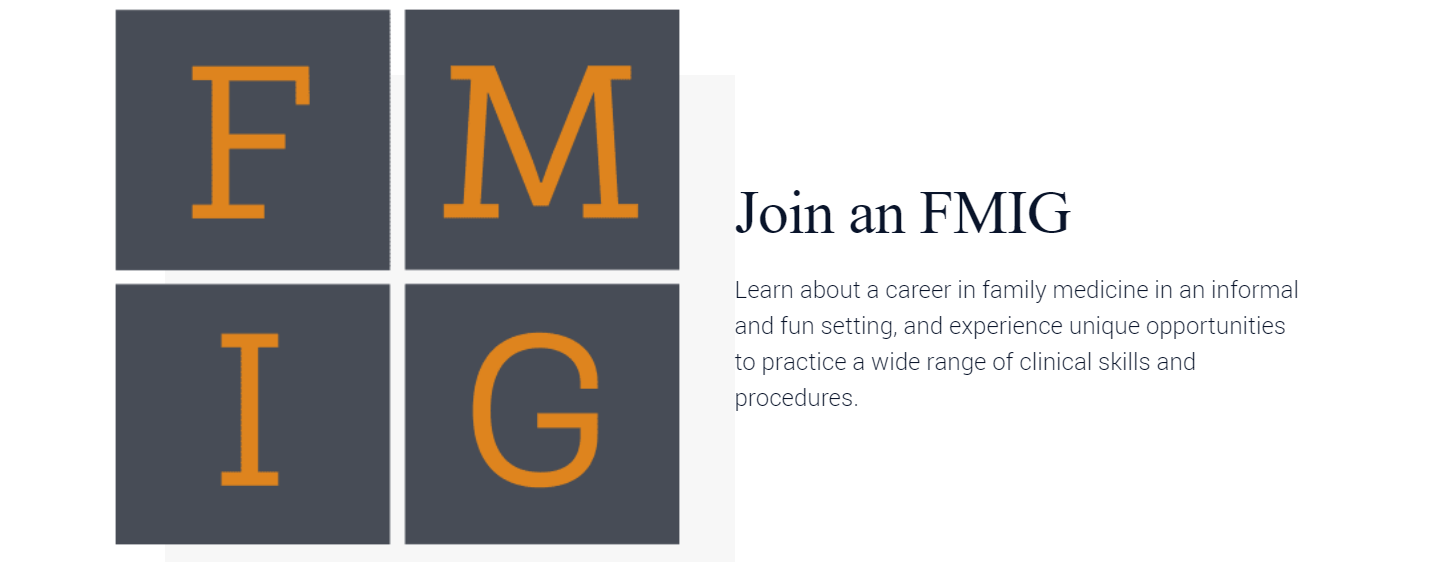
Family Medicine Interest Groups (FMIGs) are an excellent resource for students interested in exploring Family Medicine in an informal, but educational (and fun!) setting. FMIGs provide programming and information that may not be offered in the medical school curriculum. Medical students can hear about the history of Family Medicine and its future and be exposed to a wide range of clinical skills and procedures important to family physicians.
A national FMIG network facilitates the communication and sharing of best practices between FMIGs across the country. Meet the FMIG Network Student Leaders. FMIGs engage in many worthwhile activities, such as:
- Collaborating with other interest groups to create programming and to promote events like Primary Care Week, "Cover the Uninsured" Week or and minorities in medicine.
- Participating in community service opportunities, including health fairs and screenings, student-run health clinics, caring for the homeless and visiting children's hospitals.
- Conducting clinical skills workshops with neighboring medical schools and/or residents and physicians in the community.
FMIGs receive national recognition from the AAFP through the Program of Excellence (PoE) Award and other mechanisms at the National Conference of Family Medicine Residents and Medical Students. Participation in an FMIG also affords the opportunity for leadership development through a variety of volunteer roles, including president, community service coordinator, and student membership coordinator. Many FMIG leaders go on to hold leadership positions at the state and national levels of the AAFP throughout their careers.
FMIG Resources
-
Learn how your FMIG can earn extra money by signing students up for AAFP membership and participating in the FMIG Funding Initiative.
-
This page includes links to numerous brochures and other promotional materials that can help your FMIG attract members.
-
Find out how to program interesting and relevant FMIG meetings and use this link for resources to create and plan.
-
Get in touch with your Regional Coordinator to share ideas, ask questions or connect with other schools hosting activities in your region.
-
Read application criteria and winning applications for several best practices that can be implemented by your interest group.
